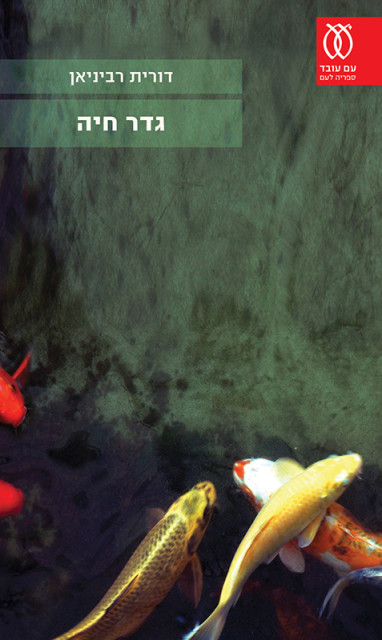
It is a new year, with new possibilities. Welcome to 2016!
Unfortunately, some people didn’t get the message and are slinking back to the past rather than walking hand in hand into the future.
Gader Haya (Borderlife), by Dorit Rabinyan, has received the coveted Bernstein literary prize in Israel and nominated by teachers to be assigned reading in advanced literature classes in many Israeli high schools.
What could be wrong with this book? Was it a gross miscarriage of justice? Was there page after page of grammar and spelling errors? No. It is because it is a book about love.
It isn’t a Fifty Shades of Grey kind of love, but the story of an Israeli translator and a Palestinian painter who meet in New York and fall in love before returning to their homes in Tel Aviv and Ramallah.
The horror! Stoke the fires and set the temperature to 451°F!
It is the classic Romeo and Juliet tale in a very bleak and modern world, so the Education Ministry decided swift action be taken to remove the book from high school curriculums before any of the students were tempted to marry each other based on who they are instead of what they are.
Education Minister, Naftali Bennett, openly supported the decision stating that allowing high school students to read a book which “depicts IDF soldiers as sadistic war criminals” was “not a national priority”.
The current high school curriculum already includes books on a variety of controversial subjects, like a 1949 novel about the expulsion of Arabs from a fictional village by Israeli soldiers (Khirbet Khizeh) and A Trumpet in the Wadi, a 1987 novel about a love affair between a Jewish man and a Christian Arab woman.
To the Ministry’s credit their proclamation did include arguments in favor of retaining the novel, such as that it dealt with the advantage of holding a discussion on, and the analyzing of, an issue relevant to the current Israeli reality.
Of course, Bennett saw it differently.
According to the text of the original order, it was removed due to a “need to maintain the identity and heritage of students in every sector” and the belief that “intimate relations between Jews and non-Jews threatens the separate identity.”
Bennett acknowledges these books have similar themes and they are allowed, but states that the difference is due to a “perspective of time”. Borderlife is current and because of that he fears that it may confront the students in a “very tangible and powerful way” with the issues of feeling love when they do not have all of the tools to contemplate such decisions.
They are human students aren’t they? They don’t need to learn how to feel love. As for the socio-political aspects, that’s what they are there to learn in an organized and academic setting.
Rabinyan responded to Bennett’s comments by saying, “Mr. Bennett did not read ‘Borderlife‘. His mendacious rhetoric in which he cherry-picked quotes, taking them out of context, is unbefitting an education minister in Israel and is infinitely more severe than the initial disqualification.”
Seem like she just had a lesson in the American style of politics.
Thankfully, the Ministry’s decision isn’t going uncontested. News of the ruling has raised public objections and critics openly accused the government of censorship. As news spread, it also added to the flames of mistrust between Muslims and Jews. A tale of love- even a fictional one- could go a long way to mending that trust, but fear of the day after has kept it alive.
The public outcry caused Bennett to adjust the Ministry’s ruling just a bit and will allow the book to be read in advanced studies but not as part of the regular classes.
Whenever the tough subjects come up- such as the issues and problems that adults create- it is often the young, with their fresh perspective, that have the answers. Adults like to think they have everything well in hand but, given the chance, the young just might surprise them with what and how much they can handle. After all, it will be their problem soon enough. They should be prepared for that responsibility.
Borderlife will see print in English and release to United States retailers this year.
Sources: Courier Mail, Israeli National News, United Press International
© 2016 R. Wolf Baldassarro/Deep Forest Productions

Leave a Reply